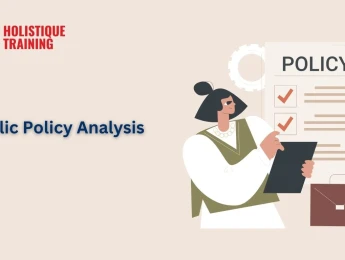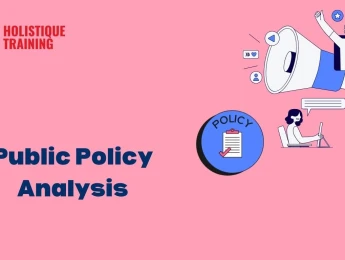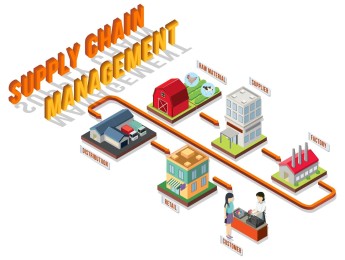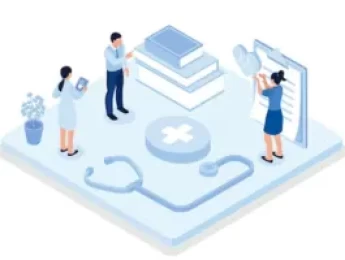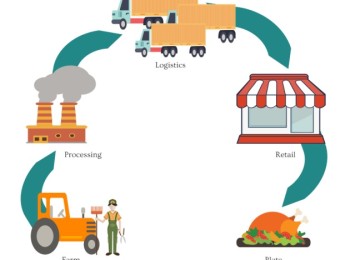Policy change is a critical tool for governments and organizations seeking to respond to new challenges, improve systems, and serve communities more effectively. However, the path from identifying a policy problem to implementing change can be complex and requires both leadership and careful planning.
This training course provides professionals with a simple and practical roadmap for leading policy change in government institutions, NGOs, or cross-sector collaborations. Participants will explore tools to understand public needs, design evidence-based policy plans, and lead inclusive, effective reform processes. Whether introducing new laws, improving current policies, or transforming systems, this course helps participants lead change with clarity, strategy, and impact.
By the end of the training, participants will be able to:
- Understand the stages and principles of the policy cycle.
- Analyze public problems and assess the need for policy reform.
- Lead stakeholder consultations and build consensus.
- Design effective policy plans aligned with public interest.
- Develop strategies to implement and monitor change.
- Manage risks and overcome resistance to reform.
- Use evidence and data to guide decisions.
- Communicate policy goals clearly and persuasively.
This course is designed for:
- Policy makers, advisors, and public officials.
- NGO professionals involved in advocacy or policy planning.
- Local and national government staff.
- Program managers and team leaders in public reform projects.
- Donor agencies and international development partners.
- Researchers and analysts supporting policy initiatives.
The course uses real-life examples, interactive workshops, and visual tools to make learning practical and engaging. Participants will work through each stage of the policy change process using simplified models, collaborative group work, and applied exercises. Expert guidance, policy simulations, and peer learning will help participants build leadership skills and apply the course content to their own policy goals.
Day 5 of each course is reserved for a Q&A session, which may occur off-site. For 10-day courses, this also applies to day 10
Section 1: Understanding the Policy Cycle
- What is public policy and why does it change?
- The policy cycle: agenda setting, formulation, adoption, implementation, evaluation.
- Actors in policy: government, civil society, private sector.
- Common triggers for policy reform.
- Balancing technical evidence and political realities.
- The role of leadership throughout the cycle.
- Policy goals vs. political interests.
Section 2: Problem Analysis and Policy Diagnosis
- Identifying and defining public problems.
- Tools for problem mapping and root cause analysis.
- Gathering data and evidence for policy decisions.
- Understanding social, economic, and political context.
- Prioritizing issues for policy action.
- Framing problems for public and political support.
- Avoiding policy based on assumptions.
Section 3: Strategic Policy Planning
- Setting clear goals and objectives.
- Exploring policy options and solutions.
- Using tools like SWOT and logic frameworks.
- Budgeting and resource planning.
- Aligning policies with national strategies and SDGs.
- Stakeholder mapping and planning for collaboration.
- Ensuring policies are practical and feasible.
Section 4: Leading Change and Building Support
- Role of leadership in policy transformation.
- Engaging and influencing key actors.
- Building coalitions and alliances for change.
- Gaining public trust and legitimacy.
- Mobilizing political will.
- Leading through uncertainty and opposition.
- Empowering teams and champions of change.
Section 5: Stakeholder Consultation and Participation
- Why inclusion matters in policy-making.
- Methods for public and stakeholder engagement.
- Facilitating policy dialogue and negotiation.
- Managing diverse and conflicting interests.
- Using consultation results to refine policy.
- Communicating transparently during the process.
- Respecting cultural and social dynamics.
Section 6: Policy Implementation and Monitoring
- Turning plans into action.
- Creating implementation frameworks and timelines.
- Assigning roles and responsibilities.
- Setting indicators for tracking progress.
- Identifying risks and planning mitigation.
- Learning from early feedback.
- Supporting continuous improvement.
Section 7: Policy Evaluation and Sustainability
- Importance of policy evaluation.
- Types of evaluation: formative, summative, impact.
- Collecting and analyzing evidence.
- Sharing results with decision-makers and citizens.
- Adapting policy based on lessons learned.
- Institutionalizing reforms for long-term success.
- Building capacity for future policy planning.
Upon successful completion of this training course, delegates will be awarded a Holistique Training Certificate of Completion. For those who attend and complete the online training course, a Holistique Training e-Certificate will be provided.
Holistique Training Certificates are accredited by the British Accreditation Council (BAC) and The CPD Certification Service (CPD), and are certified under ISO 9001, ISO 21001, and ISO 29993 standards.
CPD credits for this course are granted by our Certificates and will be reflected on the Holistique Training Certificate of Completion. In accordance with the standards of The CPD Certification Service, one CPD credit is awarded per hour of course attendance. A maximum of 50 CPD credits can be claimed for any single course we currently offer.
- Course Code IND11 - 116
- Course Format Classroom, Online,
- Duration 10 days




